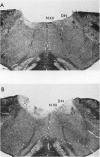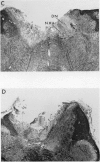Abstract
1. The dorsal motor nucleus of the vagus was destroyed in cats and after survival periods greater than 10 days, the response of the heart, bronchioles, oesophagus and duodenum to electrical stimulation of the cervical vagi was investigated. The responses obtained from the vagus ipsilateral to the destroyed dorsal motor nucleus were compared to those obtained from the contralateral vagus and with normal controls. No significant differences were demonstrable.
2. The responses obtained from stimulation of the cervical vagus following chronic intracranial rhizotomy of the IXth, Xth and XIth nerves were also examined. Visceromotor responses were abolished in three experiments and atypical responses were obtained in two experiments.
3. It is concluded that the dorsal motor nucleus does not supply the vagal fibres which produce contraction of the smooth muscle of the bronchioles, oesophagus and duodenum, and that it is not the source of the cardio-inhibitory fibres
4. A simple method of destroying a longitudinal column of neurones is described.
Full text
PDF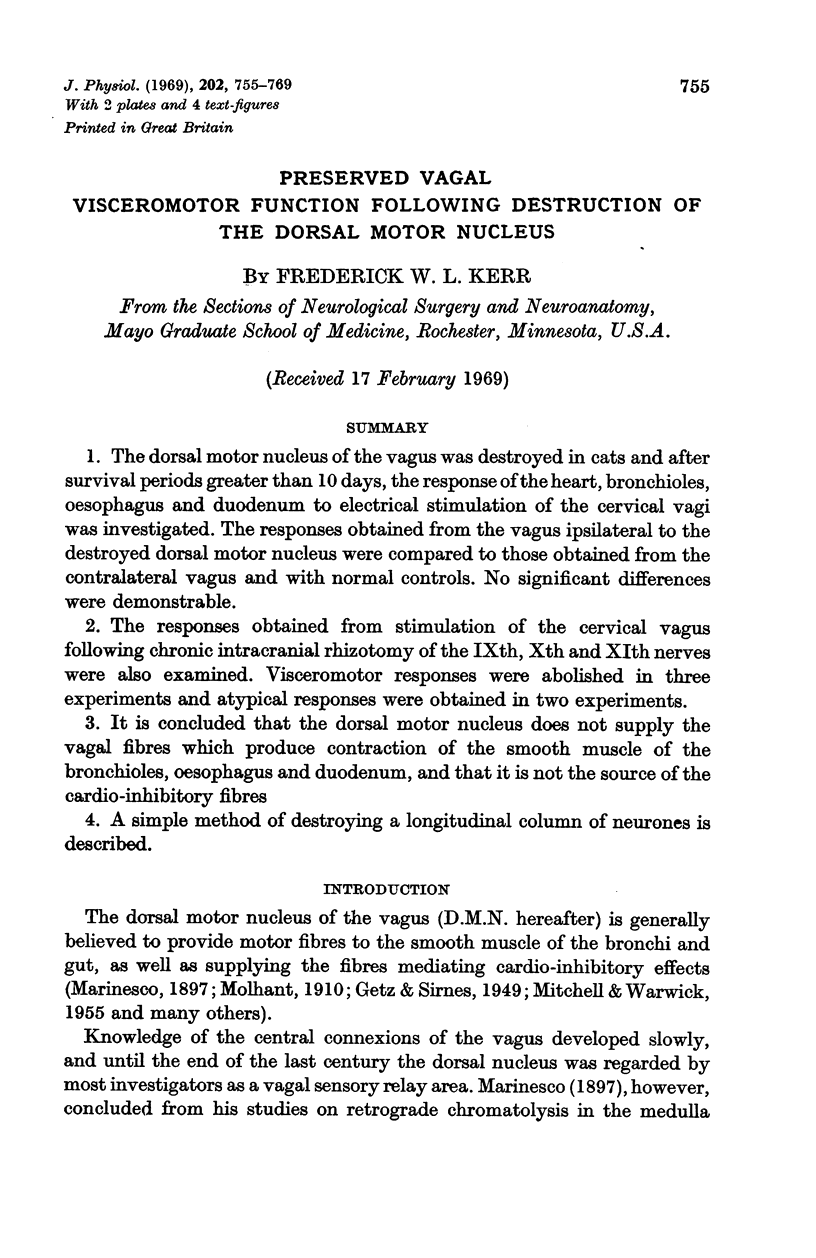
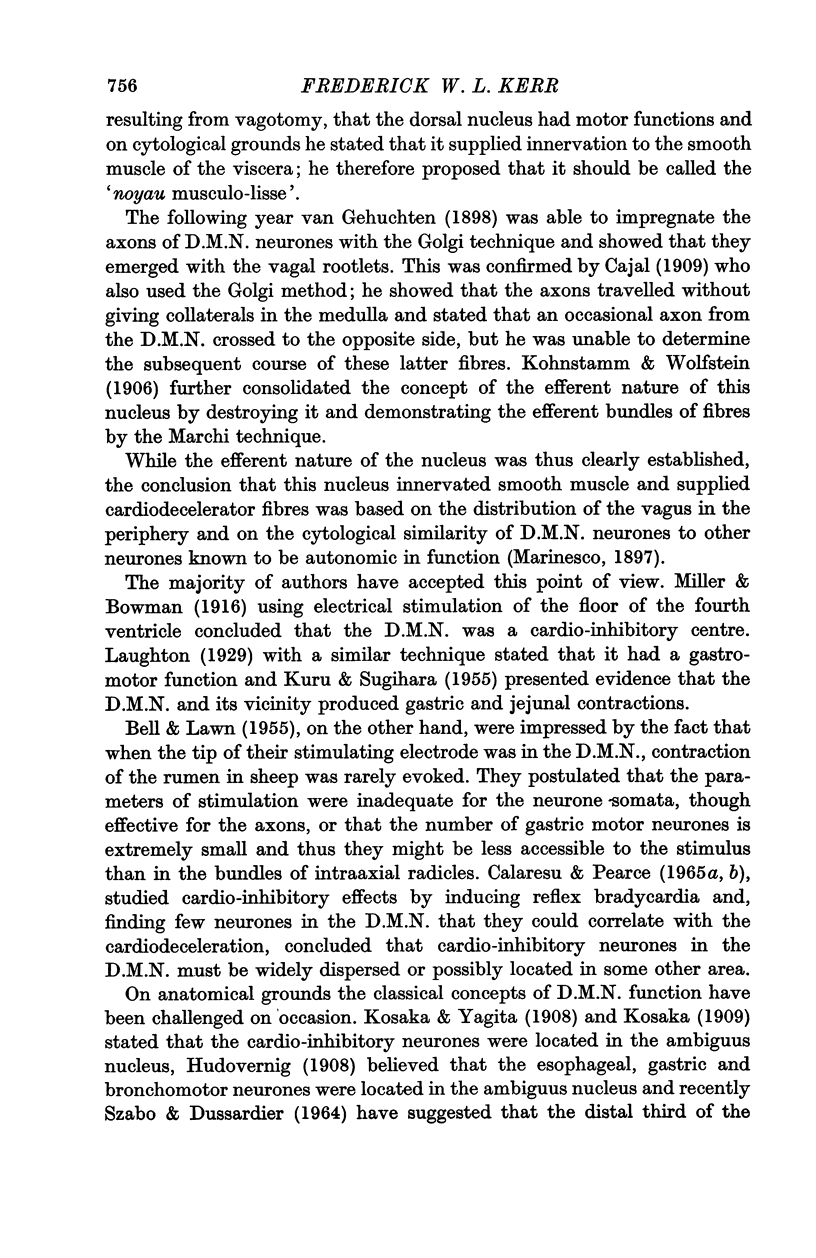
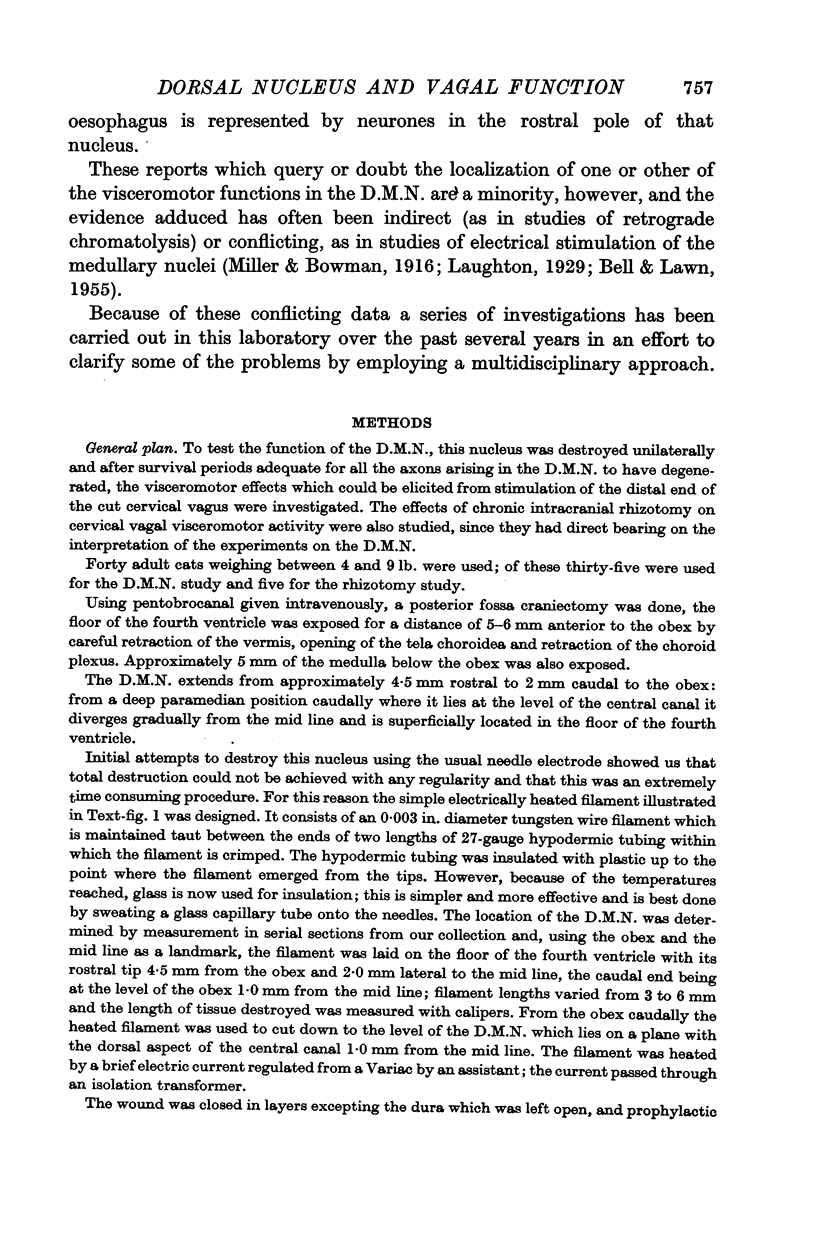
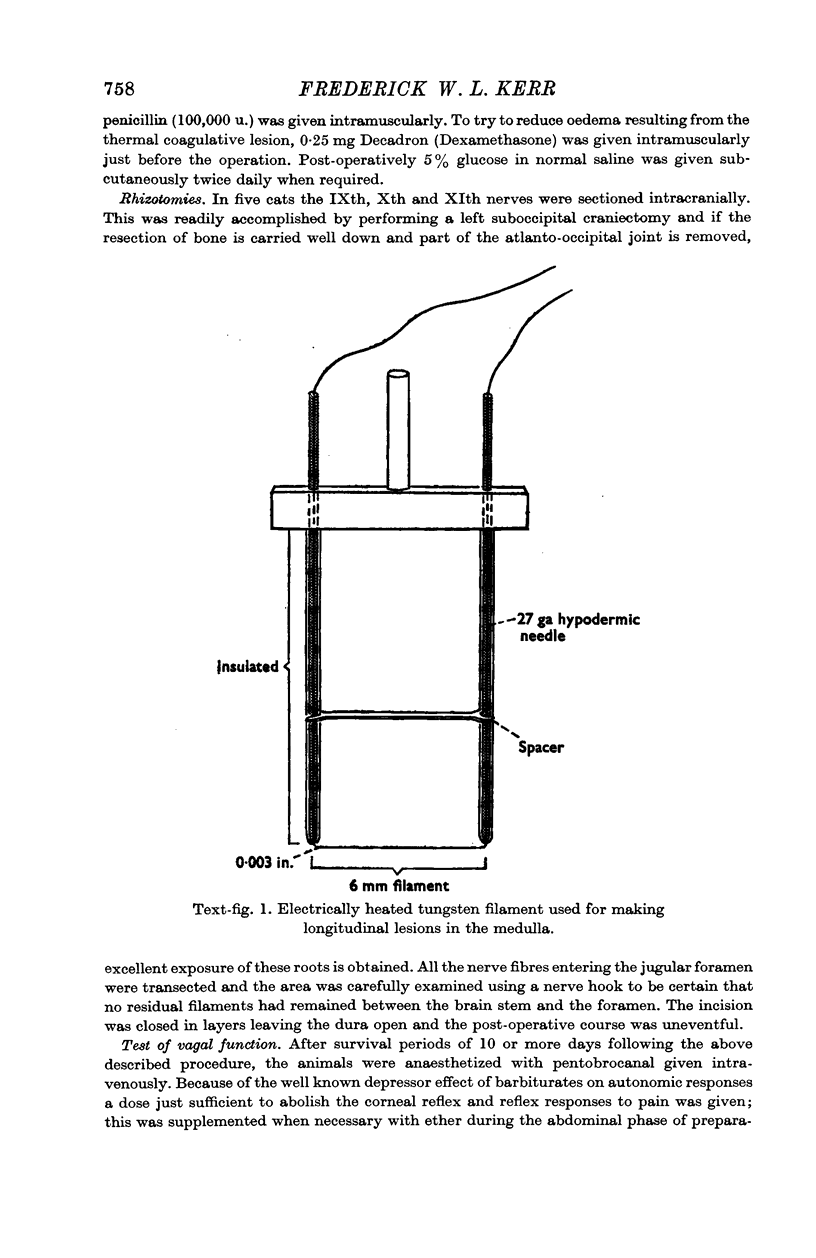
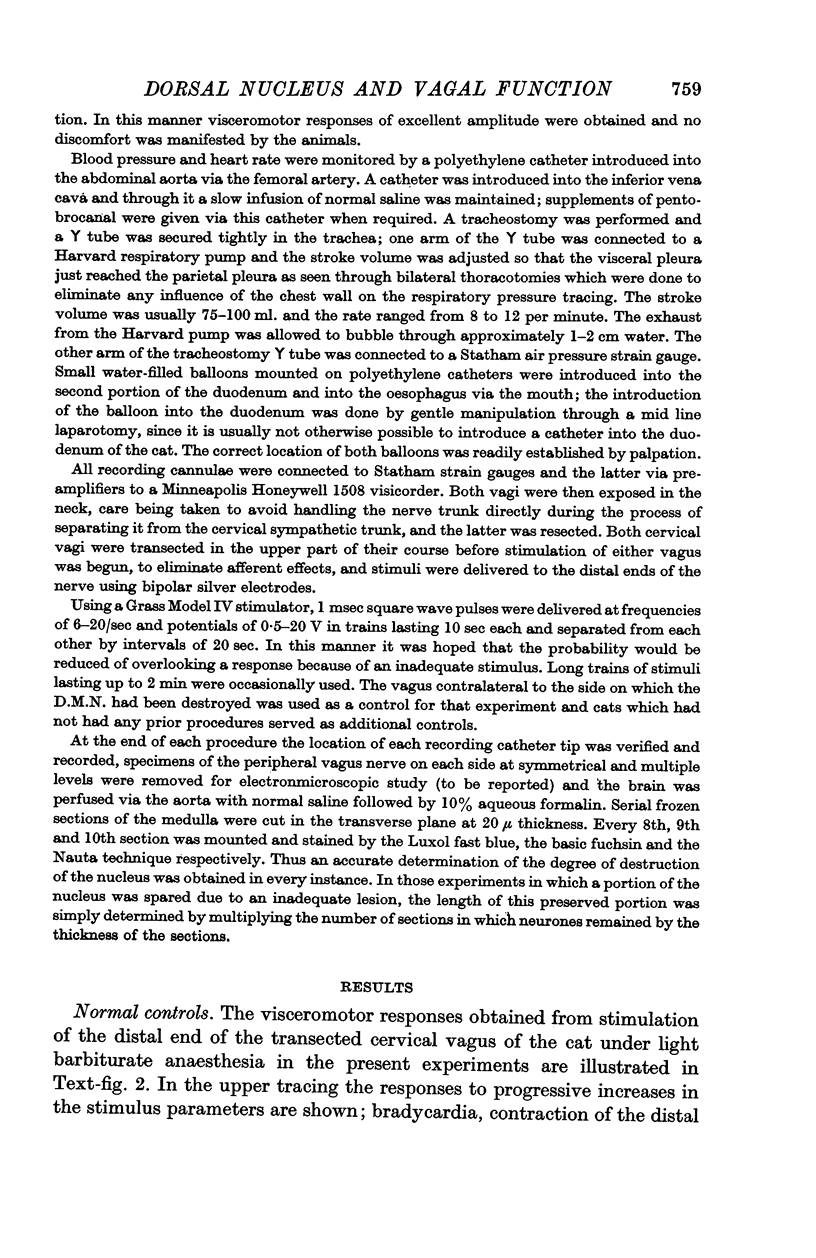
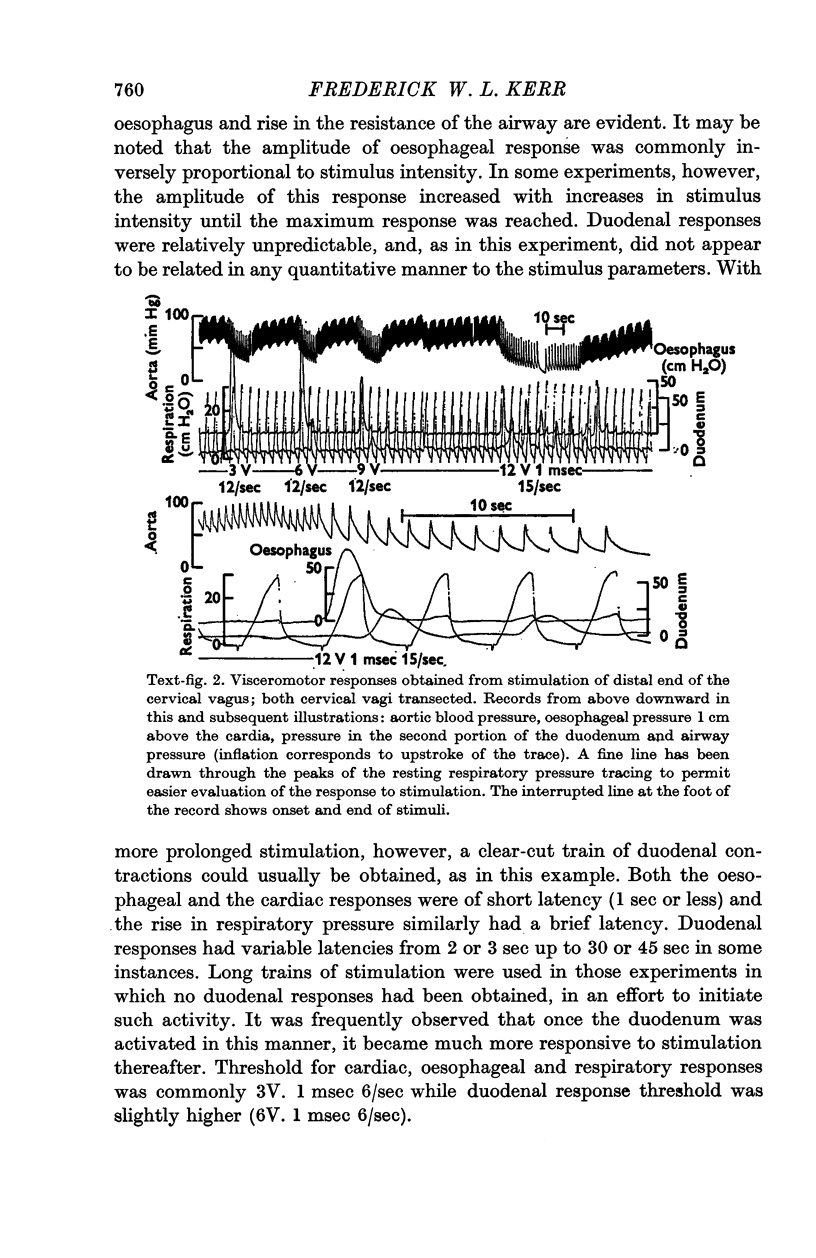
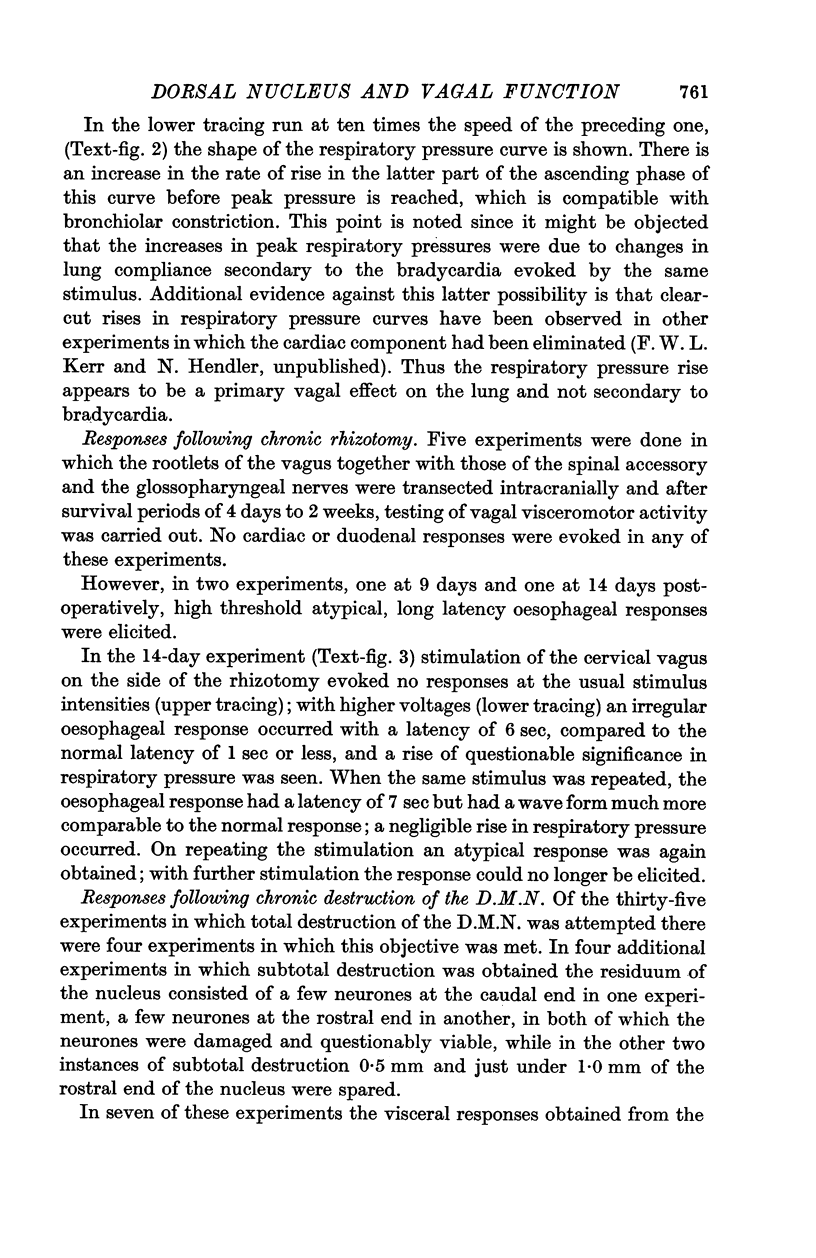
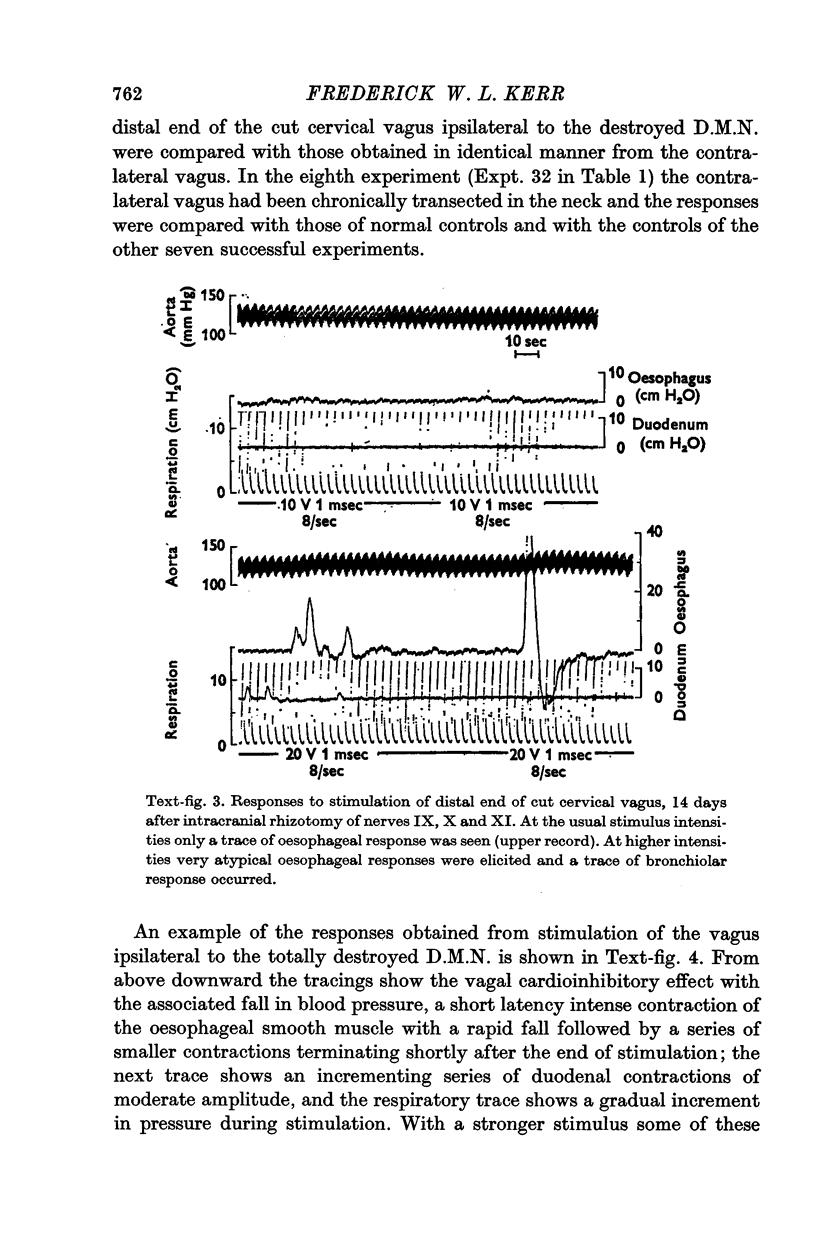
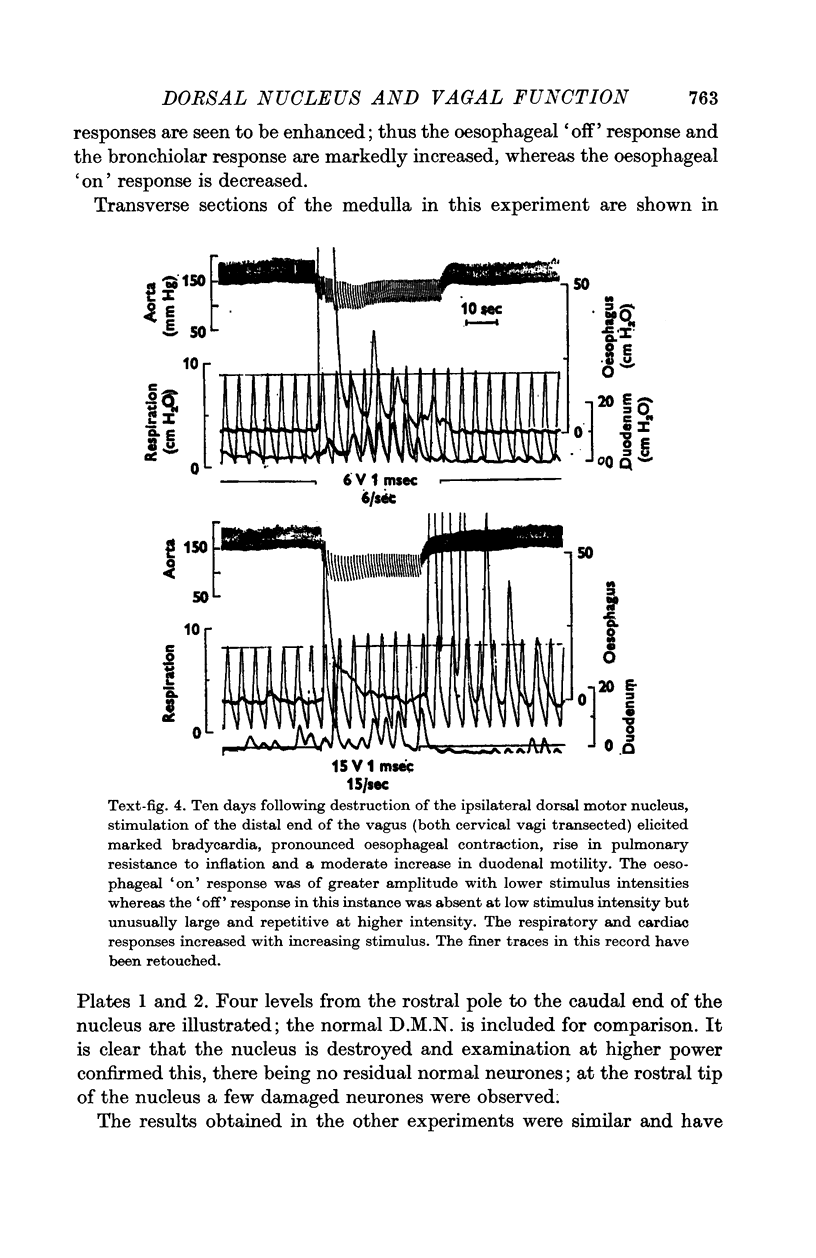
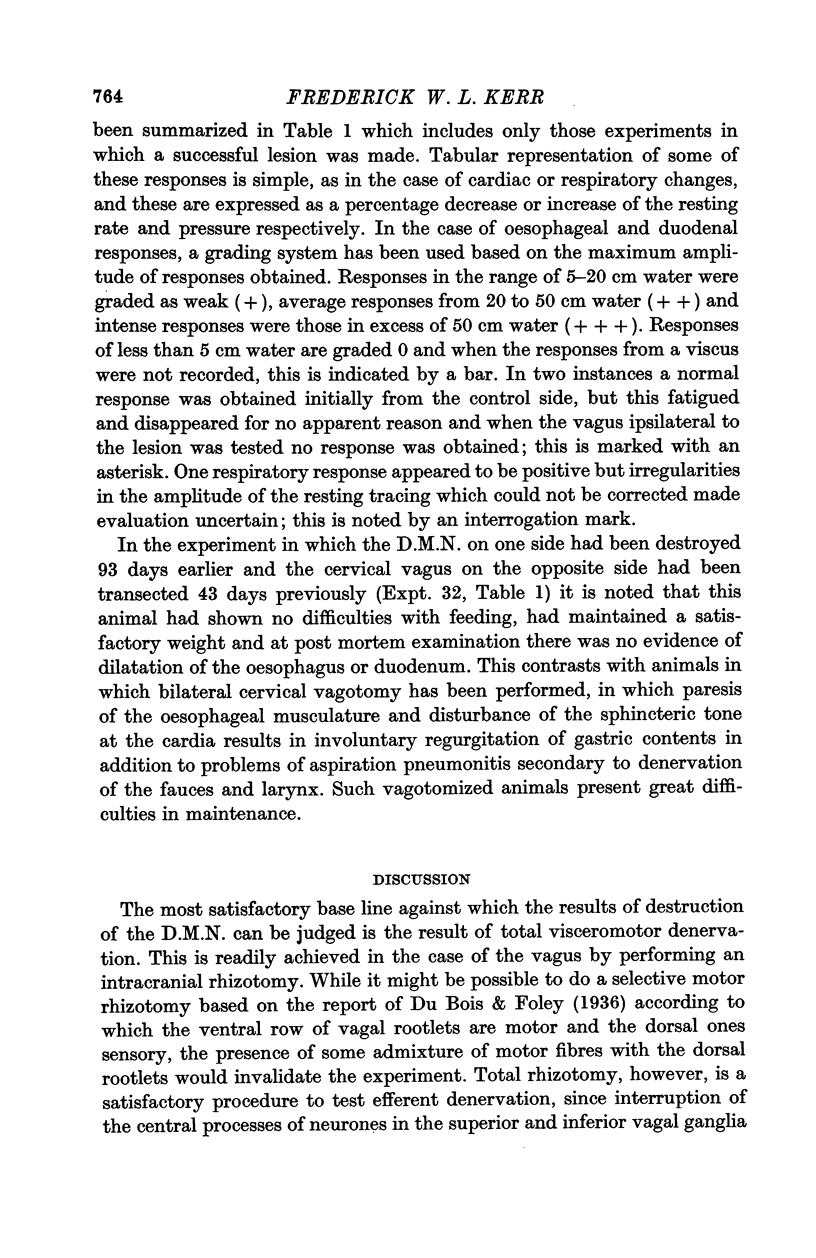
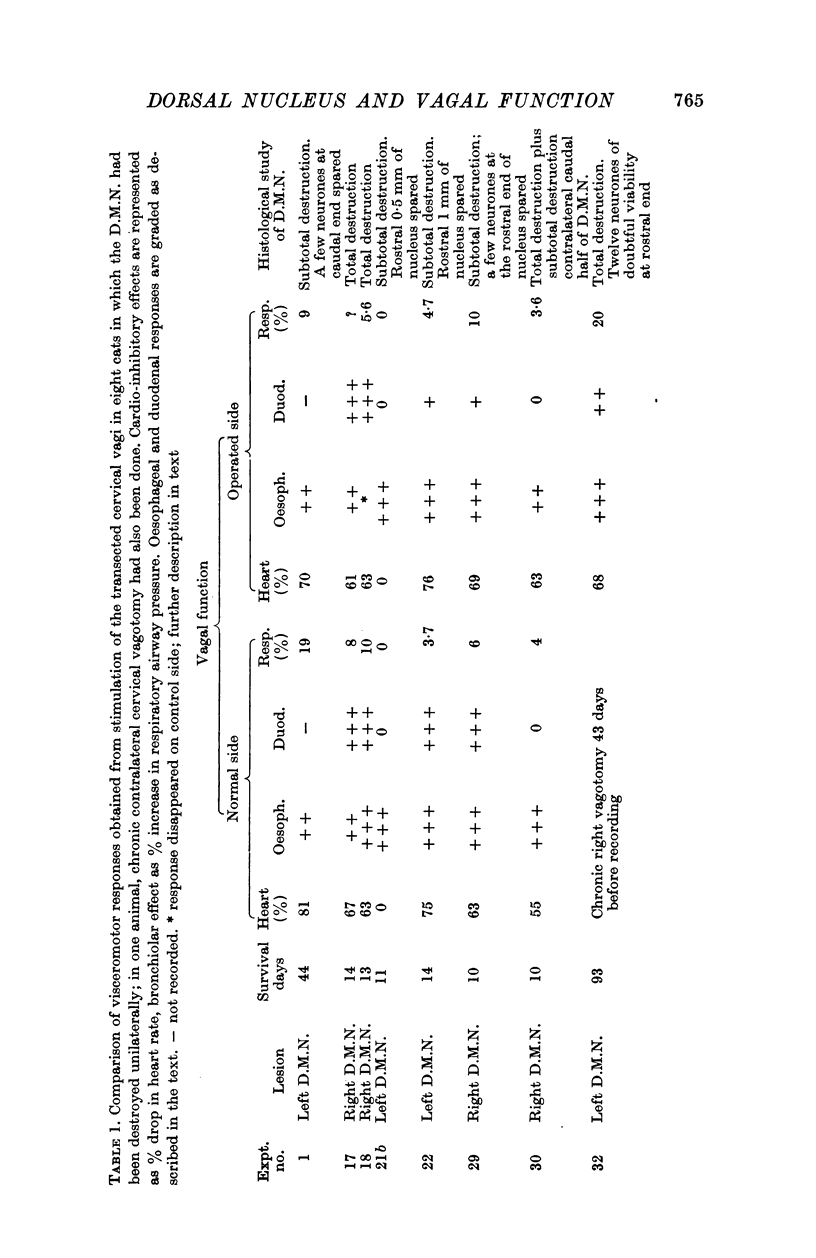
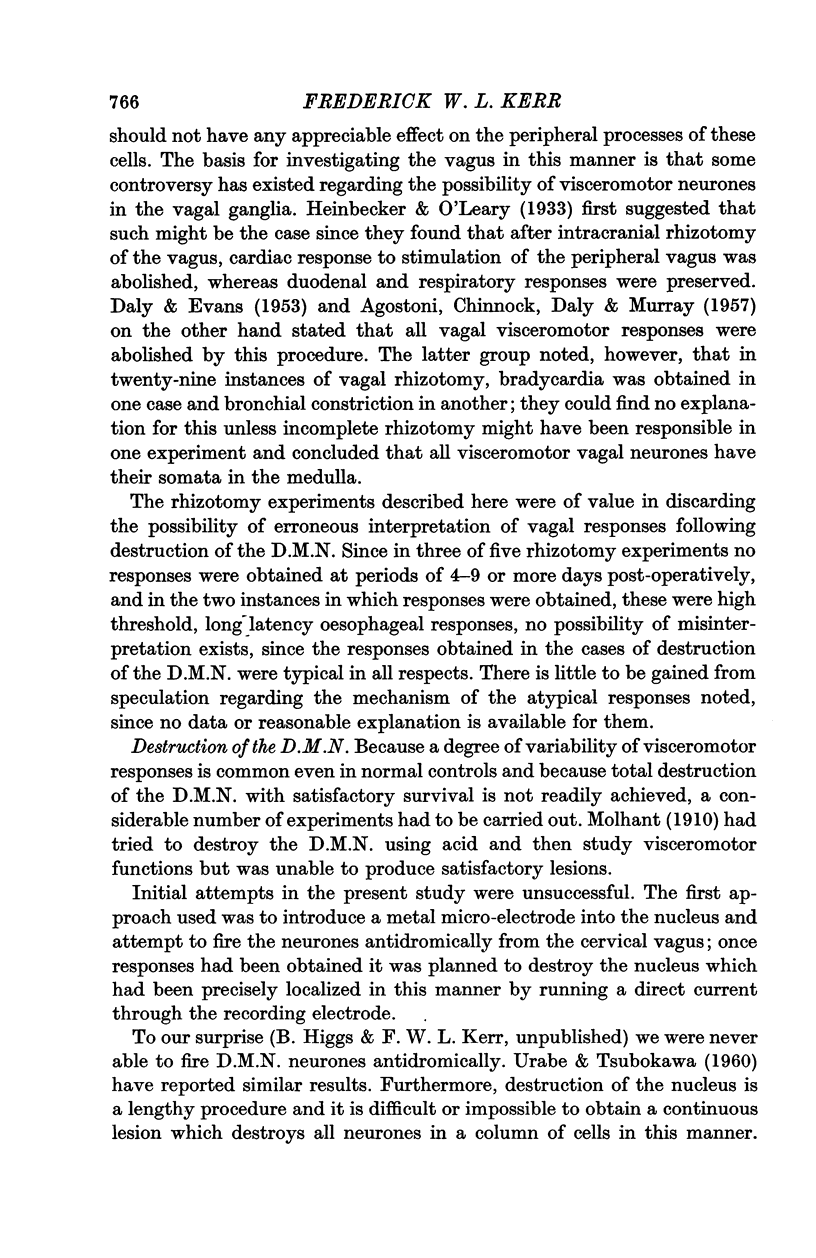
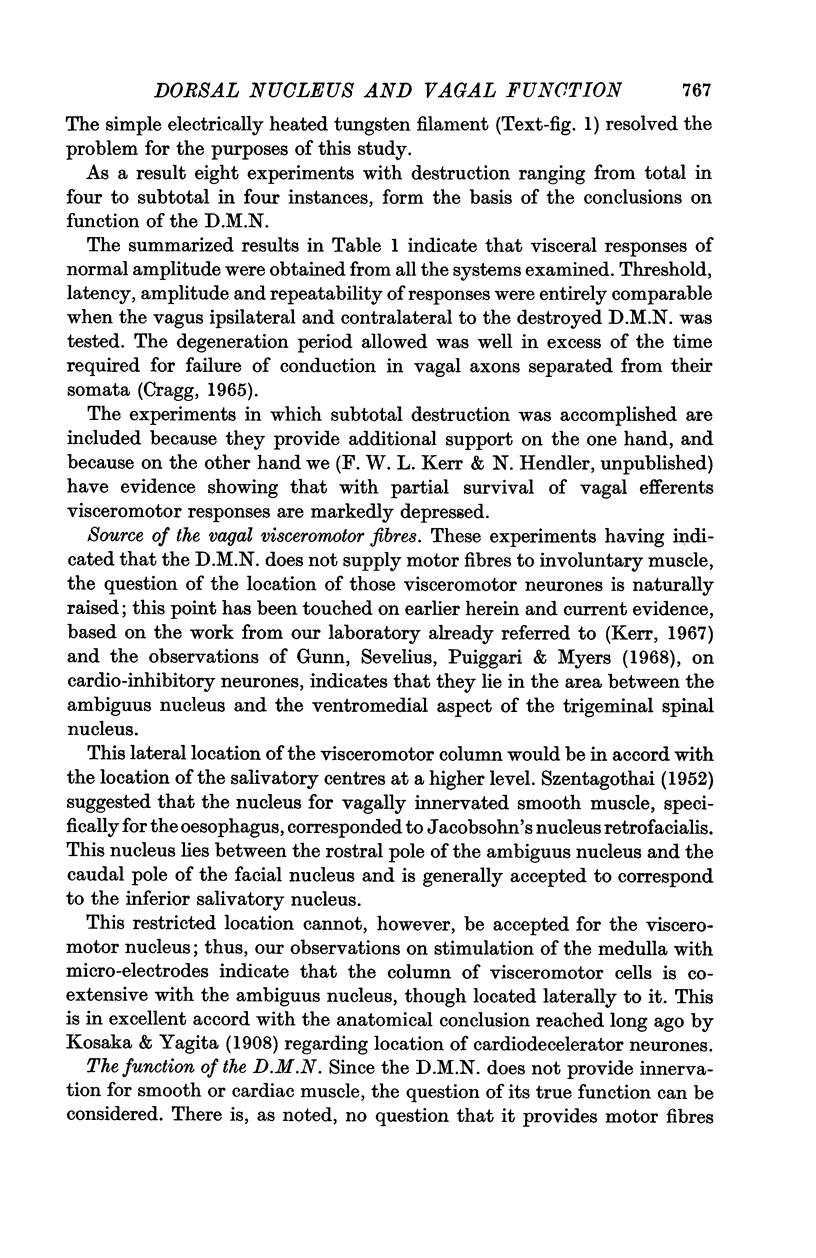
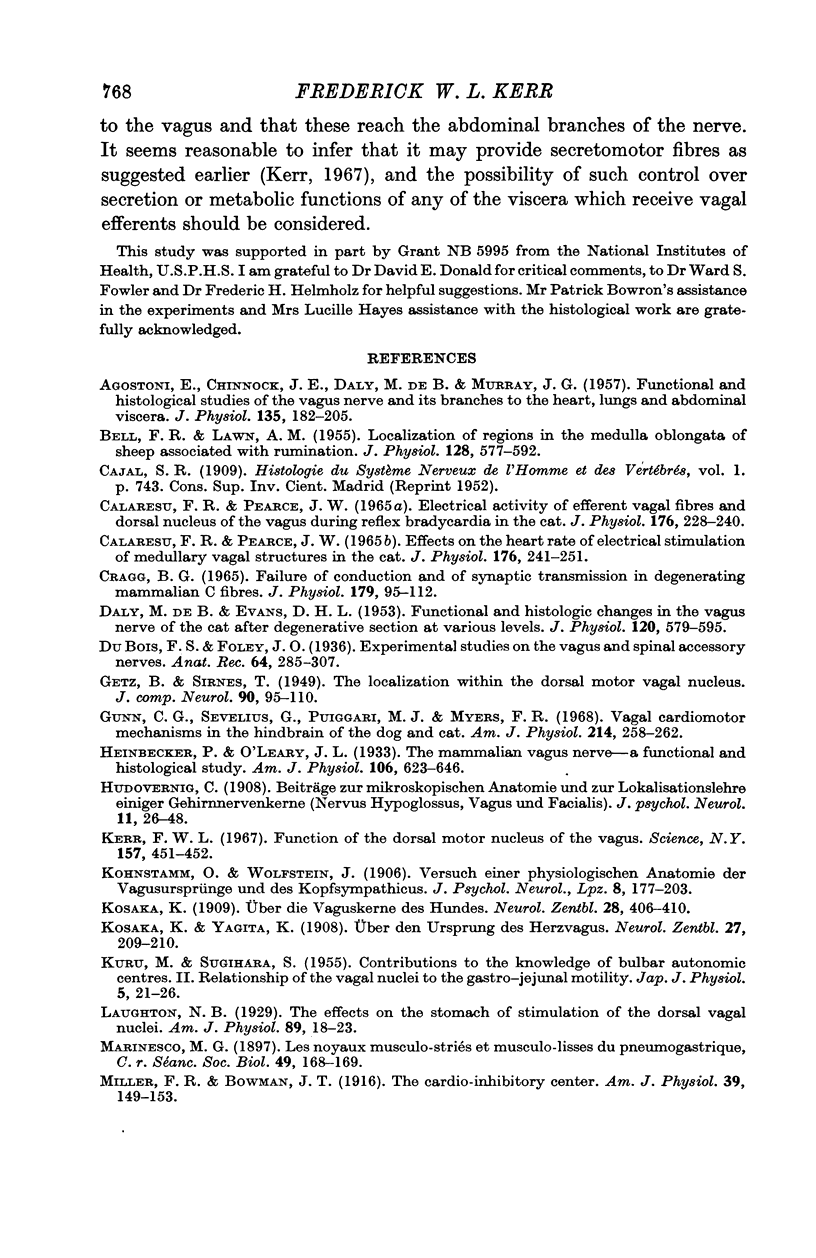
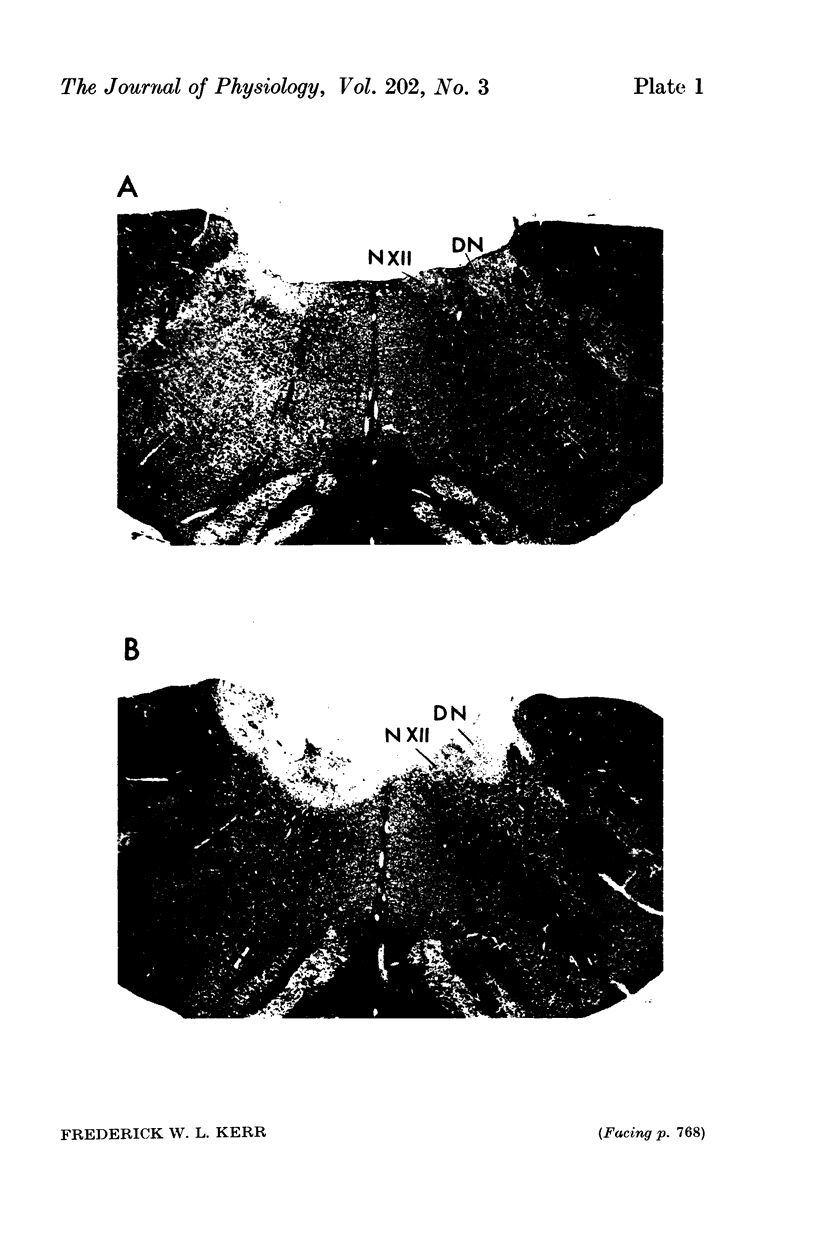
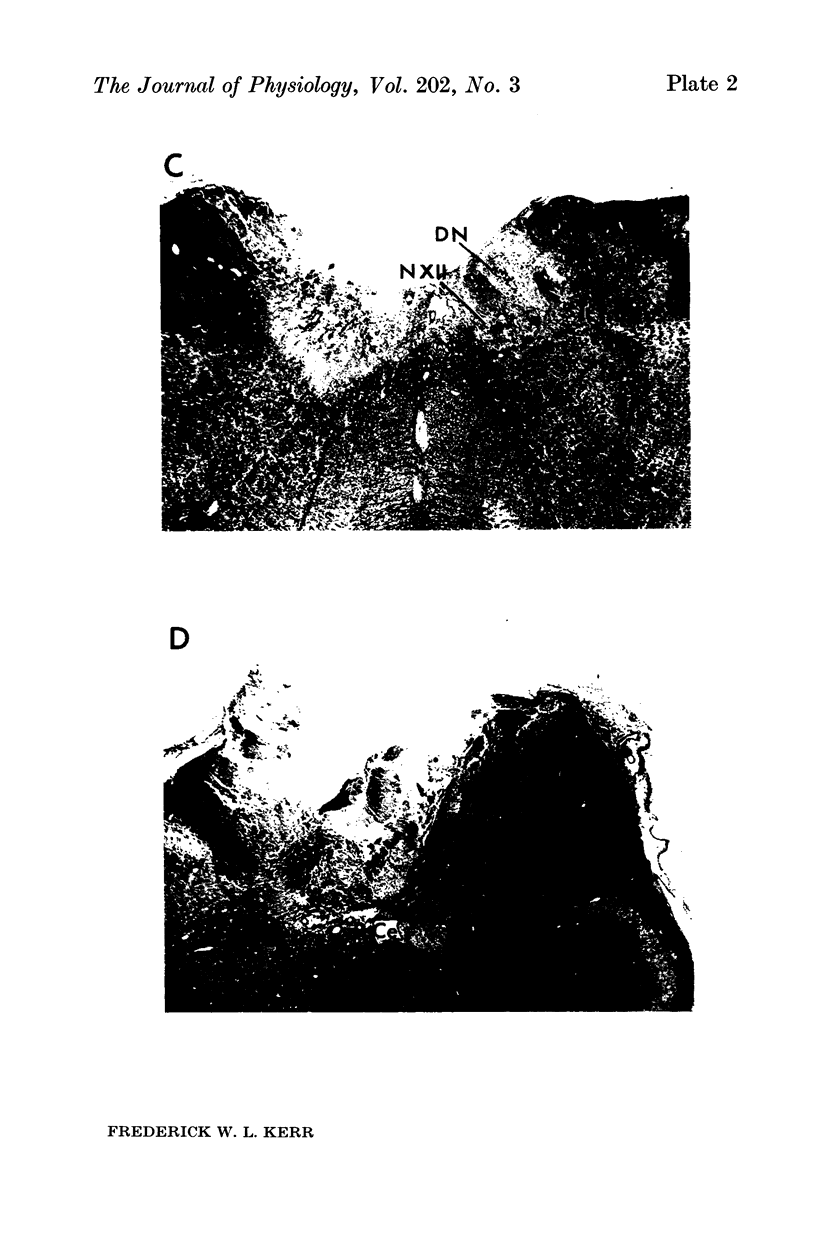
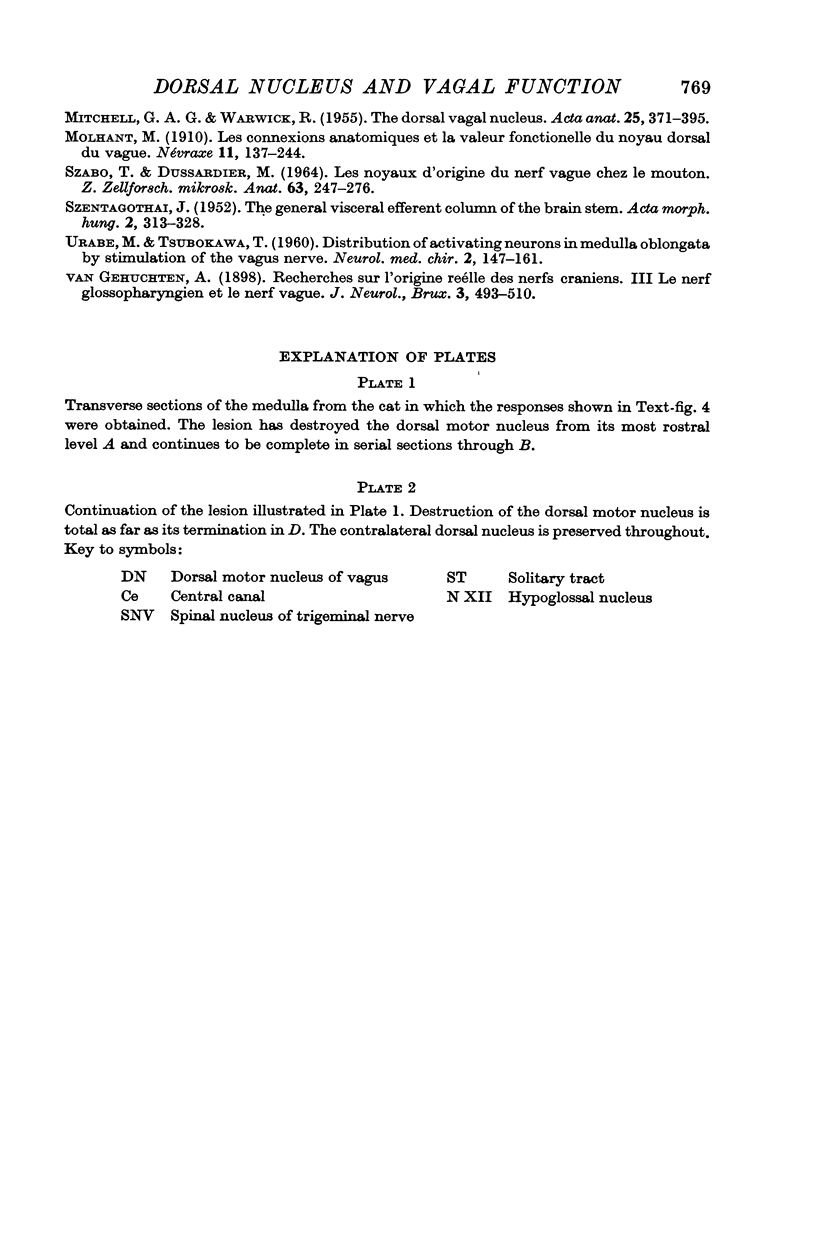
Images in this article
Selected References
These references are in PubMed. This may not be the complete list of references from this article.
- AGOSTONI E., CHINNOCK J. E., DE DALY M. B., MURRAY J. G. Functional and histological studies of the vagus nerve and its branches to the heart, lungs and abdominal viscera in the cat. J Physiol. 1957 Jan 23;135(1):182–205. doi: 10.1113/jphysiol.1957.sp005703. [DOI] [PMC free article] [PubMed] [Google Scholar]
- BELL F. R., LAWN A. M. Localization of regions in the medulla oblongata of sheep associated with rumination. J Physiol. 1955 Jun 28;128(3):577–592. doi: 10.1113/jphysiol.1955.sp005326. [DOI] [PMC free article] [PubMed] [Google Scholar]
- CALARESU F. R., PEARCE J. W. EFFECTS ON HEART RATE OF ELECTRICAL STIMULATION OF MEDULLARY VAGAL STRUCTURES IN THE CAT. J Physiol. 1965 Jan;176:241–251. doi: 10.1113/jphysiol.1965.sp007547. [DOI] [PMC free article] [PubMed] [Google Scholar]
- CALARESU F. R., PEARCE J. W. ELECTRICAL ACTIVITY OF EFFERENT VAGAL FIBRES AND DORSAL NUCLEUS OF THE VAGUS DURING REFLEX BRADYCARDIA IN THE CAT. J Physiol. 1965 Jan;176:228–240. doi: 10.1113/jphysiol.1965.sp007546. [DOI] [PMC free article] [PubMed] [Google Scholar]
- Cragg B. G. Failure of conduction and of synaptic transmission in degenerating mammalian C fibres. J Physiol. 1965 Jul;179(1):95–112. doi: 10.1113/jphysiol.1965.sp007650. [DOI] [PMC free article] [PubMed] [Google Scholar]
- DALY M. D., EVANS D. H. Functional and histological changes in the vagus nerve of the cat after degenerative section at various levels. J Physiol. 1953 Jun 29;120(4):579–595. doi: 10.1113/jphysiol.1953.sp004919. [DOI] [PMC free article] [PubMed] [Google Scholar]
- Gunn C. G., Sevelius G., Puiggari J., Myers F. K. Vagal cardiomotor mechanisms in the hindbrain of the dog and cat. Am J Physiol. 1968 Feb;214(2):258–262. doi: 10.1152/ajplegacy.1968.214.2.258. [DOI] [PubMed] [Google Scholar]
- KURU M., SUGIHARA S. Contributions to the knowledge of bulbar autonomic centers. II. Relationship of the vagal nuclei to the gastrojejunal motility. Appendix: on the vomiting centre. Jpn J Physiol. 1955 Mar 30;5(1):21–36. [PubMed] [Google Scholar]
- Kerr F. W. Function of the dorsal motor nucleus of the vagus. Science. 1967 Jul 28;157(3787):451–452. doi: 10.1126/science.157.3787.451. [DOI] [PubMed] [Google Scholar]
- MITCHELL G. A., WARWICK R. The dorsal vagal nucleus. Acta Anat (Basel) 1955;25(2-4):371–395. doi: 10.1159/000141082. [DOI] [PubMed] [Google Scholar]
- SZABO T., DUSSARDIER M. LES NOYAUX D'ORIGINE DU NERF VAGUE CHEZ LE MOUTON. Z Zellforsch Mikrosk Anat. 1964 Jul 6;63:247–276. [PubMed] [Google Scholar]



